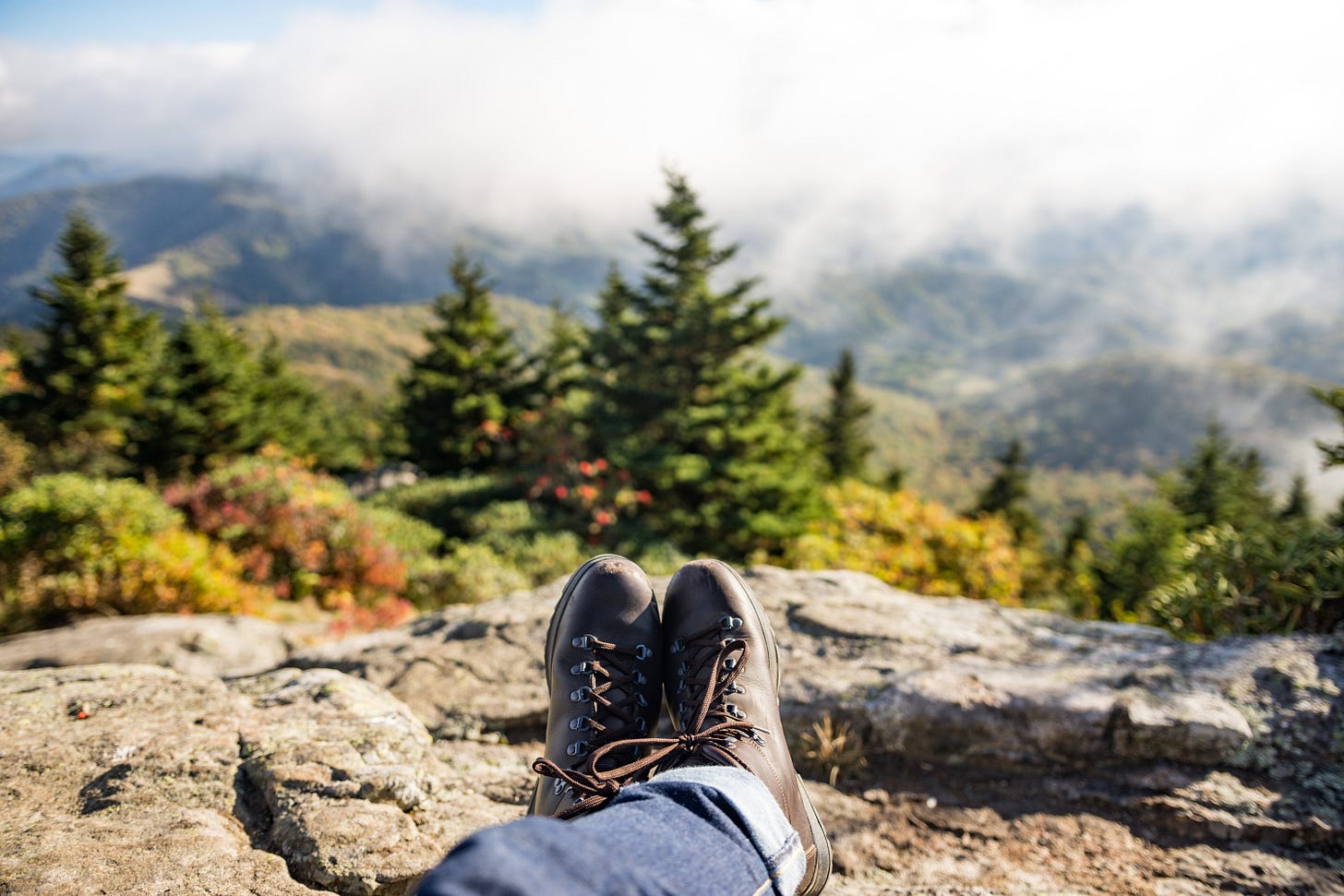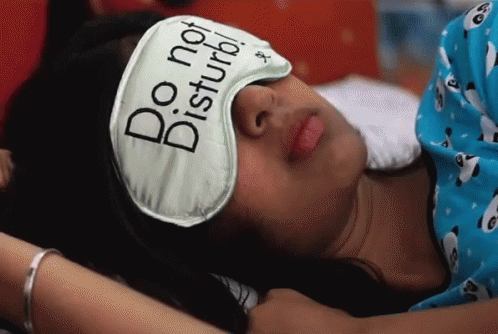Slowing Down to Speed Up: Practical Ways to Implement Rest
It's about time you took a break - again, and again, and again.
Hey folks!
Apologies for the delay in the release of this article. Funnily enough, the content of this article is reflected in my life - resting. I was away on holiday, slowing down to speed up. I hope you enjoy the reflections I’ve since had and distilled, in the hope that you too, would find the capacity to slow down to speed up.
‘All my life, been grindin' all my life
Sacrificed, hustle paid the price.’
For the lovely folks who are not as well-versed in the songs of Nipsey Hussle, I’d recommend you check him out. In this particular song, Nipsey tells the story of his life.
It’s one of struggle and grit, a life where he outlines the reality of being a Black man in America, caught up in the structural, institutional and community issues preventing him from having the easiest ride in life.
Whilst you might not resonate with his exact experiences, you might resonate with the underlying sentiment. It seems like that is what life is all about - the hustle, the grind, the bustle, the labour. For me, growing up in a working class family in inner city London, the grind was copy and pasted into our very psyches. To get ahead?
Princess, you have to work hard, my parents said,
Now, I’ve never despised hard work. In fact, I have found that I thrive in intense conditions of pressure because working hard within these parameters have been a normal part of my life.
However, when the grind becomes you, that’s the moment you become a problem.
As we hurtle faster and faster towards the end of the first quarter of 2022, it’s tempting to look at the goals you created for yourself at the beginning of the year, and conclude that the reason you aren’t progressing (or perhaps the reason you are doing so well) is down to hard work. You’ve got to grind until you’ve ground your bones to the floor.
Could it be the opposite?
Could it be that what you really need to implement is more rest? Instead of waking up that extra hour, could it be that you actually need another hour to sleep? Instead of working out another day in the week, perhaps you actually need to find more restorative physical activities? Could it be that it’s time to book that holiday you’ve been putting off to demonstrate that you’re a ‘team player’ at work?
There is a time to rise. There is a time to grind.
There’s also a time to rest.
Summary of Key Points
Rest: the Blue Print for Success
A Changing Worldview: Rest Beyond the Pandemic
Practical Ways to Live a Life of Rest
Rest: the Blueprint for Success
People often think that the greatest things happen at the height of your ‘grind’. I’d argue that there are two moments in life, during which you will experience your greatest breakthroughs - at the peak of your performance, and at the apex of your downtime.
Some of best things happen when you are resting, or immediately after a substantial time of rest.
Think about it.
The National Sleep Foundation recommends between 7-9 hours of sleep per day. Do you remember the last time you had a really good night’s sleep? When you woke up feeling refreshed, happy and well-rested? It always sets you up for a great day - because your body has had the necessary time it requires to repair and rejuvenate.
Deep relaxation, like meditation, can relieve stress and anxiety, as well as improve your mood. Deep relaxation has many other potential benefits as well—it can decrease blood pressure, relieve pain, and improve your immune and cardiovascular systems.
You don’t have to work out for 2 hours every single day to get the body you desire. Having rest days within a workout programme give your muscles an opportunity to repair and adapt, and becomes all the more essential in injury prevention. Important neuro-muscular adaptions occur during rest, and in fact, muscle growth and fat loss processes happen more efficiently during times of rest.
Greatness requires you to abide in a place of rest.
A Changing Worldview: Resting Beyond the Pandemic
The pandemic has had a catastrophic impact on our worldview. Beyond the more negative impacts on social interactions, mental health and the economy, there have been significant ideological breaks as well.
We’ve come to embrace remote working, taking frequent breaks, wellbeing in the workplace, and following our passions all the more. We’ve seen companies and countries alike begin to embrace the notion of a 4-day working week to extend our all-too-precious downtime that we call the weekend.
Rest can no longer be a blacklisted word. Labour cannot be the sole defining reason that we wake up in the morning, and the end of labour cannot mark the end of our days. We’ve woken up and smelled the coffee - whilst labour has defined the lives of many of us, labour has never been defined by us.
Now, this is not the klaxon call you were hoping it would be to quit and move to a remote island (that’s my vision). This is simply a reminder to be more critical about your relationship with work. It is neither necessary or helpful to allow your life to be dictated by labour - you might make a little more money, or get a little raise, or work your a little bit up in a company.
Beyond work, what does your life comprise of? Do you remember, cherish and prioritise moments with loved ones? Do you take time to be alone? Do actively give yourself space to dwell in the things of this life which aren’t centred around what you can produce, but where you can exist?
A Life of Rest: Practical Implementation
So. beyond the airy-fairy necessity of resting, how does one actually go about implementing rest in their day-to-day or year-to-year? What does it actually look like?
Daily rest
I like to call my daily rest my ‘power-down hour’. It’s the time at which, during the day, everything is powered-down. After 6pm, work is done for me. After 9.00pm, my phone automatically switches to Do not Disturb. Glorious and undisturbed sleep usually finds me between 10pm and 11pm.
Weekly rest
Once a week, if possible, try to have a rest day. A day where you minimise your social media usage, the access people have to you via phone/email, and the amount of active things you engage in. I’m a huge believer in having time and space to retreat into solitude on a regular basis. I have quite a high social battery, but I can literally feel my energy powering down like a duracell bunny when I haven’t had my time alone to rest in a given week.
The focus on your weekly rest day is to restore. You might want to do your fancy skin care routines, drink a glass of red, watch a movie, go for a walk, or all of the above.
Well, that’s my idea of a rest day, and you’re welcome to be a part of the movement.
Long-term rest periods
I write this article at the airport on return from a holiday - needless to say, if you have the resources, I’m an advocate for long term holidays. It may just be a couple of days, or it may stretch out to encompass a few weeks or month. Irrespective of how ‘long-term’ your long-term holiday is, you need to take it.
Having extended breaks away from life isn’t simply to feed your desires for hedonistic escapism - although, by all means, do your thing. It’s an opportunity to mentally and physically zoom out of your life and really think about your life as a bigger picture.
We often get so caught up in the minutiae of every day living, that we forget to look at our lives as a large tapestry interwoven with our experiences, relationships and decisions. Sometimes you need to be away from it all, to better see it all.
I hope you enjoyed this week’s Optimise Me. I’ll see you again soon. Don’t forget to like or comment if anything here resonated with you - share with a friend too!
Let’s slow down to speed up.
With love,
-RK
Resources
Audio:
Visual:
Reads:
The Art of Rest: How to Find Respite in the Modern Age - Claudia Hammond



